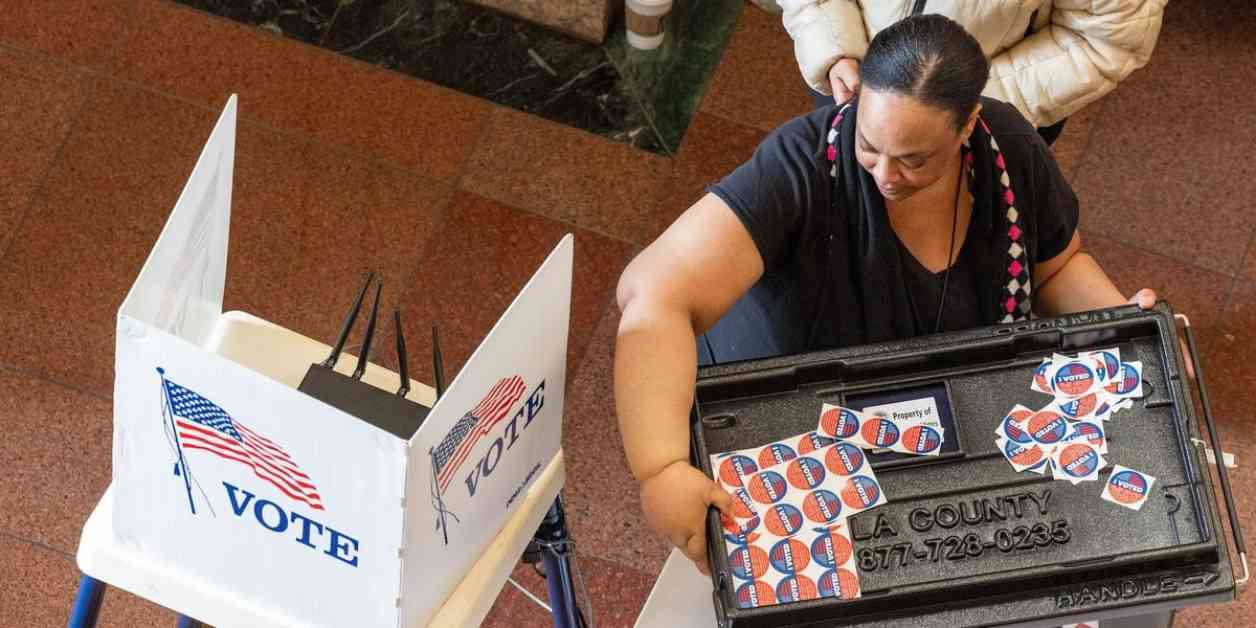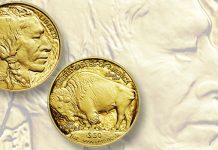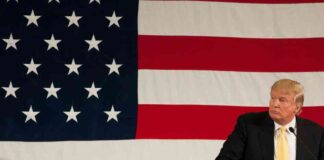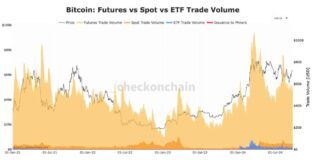Bitcoin has been on a high lately, just like Trump’s chances of winning the upcoming U.S. presidential election according to sites like PredictIt and Polymarket. Bitcoin reached $73,000 and almost hit its previous all-time high on the same day that Trump’s odds of winning the election on Polymarket reached 69%, the highest since June when there was an attempt on the former president’s life.
Many believe that the recent surge in Bitcoin is a result of investors preparing for a potential Trump victory. Some even argue that the strength in U.S. stocks and the dollar is fueled by Trump-related bets. Investors anticipate tax cuts boosting corporate profits and protectionist trade policies strengthening the greenback. This phenomenon is known as the “Trump Trade” and has been a popular topic in the news and reports.
But is this narrative really true? To find out, data was analyzed. Prediction markets like Polymarket and PredictIt allow people to bet on the election outcome. Trump’s odds have been rising recently, and a correlation analysis was conducted to see how it impacts different asset classes. The results showed that Trump-related assets like Trump Media and Technology Group (DJT) and oil do better with higher Trump odds. Stocks also have a positive correlation with Trump’s winning chances. Surprisingly, Bitcoin shows little to no correlation with Trump’s odds, suggesting that the “Trump Trade” might be exaggerated.
While prediction markets provide valuable data, it is important to note that they are not the only indicator. There have been reports of wash trading on platforms like Polymarket, which could skew the results. Despite this, Wall Street is closely monitoring the situation.
The weak correlations and inflated narratives around the “Trump Trade” should ease concerns about the election being a major market catalyst. Regardless of the outcome, the election is viewed as a short-term negative and a long-term positive. A Trump win could lead to a “buy the rumor…sell the news” scenario, while a Harris victory might cause initial market fluctuations. In the long run, the adoption of Web3 technology is accelerating, and deficit spending is driving demand for assets like Bitcoin.
The impact of the election on the crypto industry remains uncertain. A new administration could introduce favorable legislation, encourage innovation, and improve relations with the Web3 sector. However, there are doubts about Trump’s ability to bring about positive change. His economic plan, including tax cuts and deficit spending, could have adverse effects on various industries, including crypto.
Trump’s interest in crypto has raised concerns, with the launch of his own DeFi project, World Liberty Financial (WLF). Some worry that this move could undermine industry credibility and question the sincerity of Trump’s involvement in crypto. It remains to be seen whether his interest in crypto will continue beyond political convenience.
In conclusion, the election outcome may have short-term implications for the market, but the long-term trajectory of the crypto industry is driven by broader factors like technology adoption and economic trends. Voters should carefully consider the candidates’ stances on crypto before casting their ballots.














